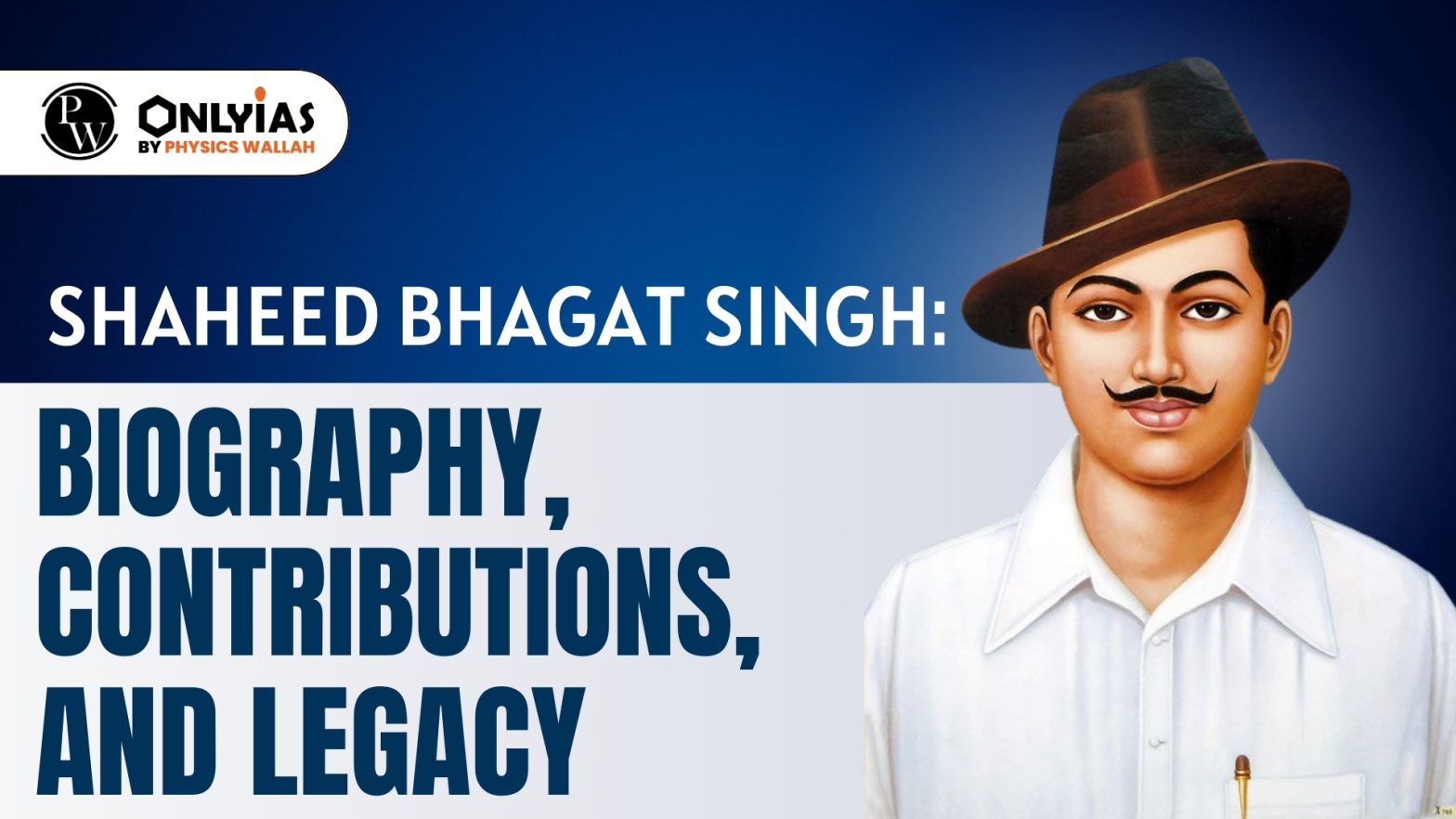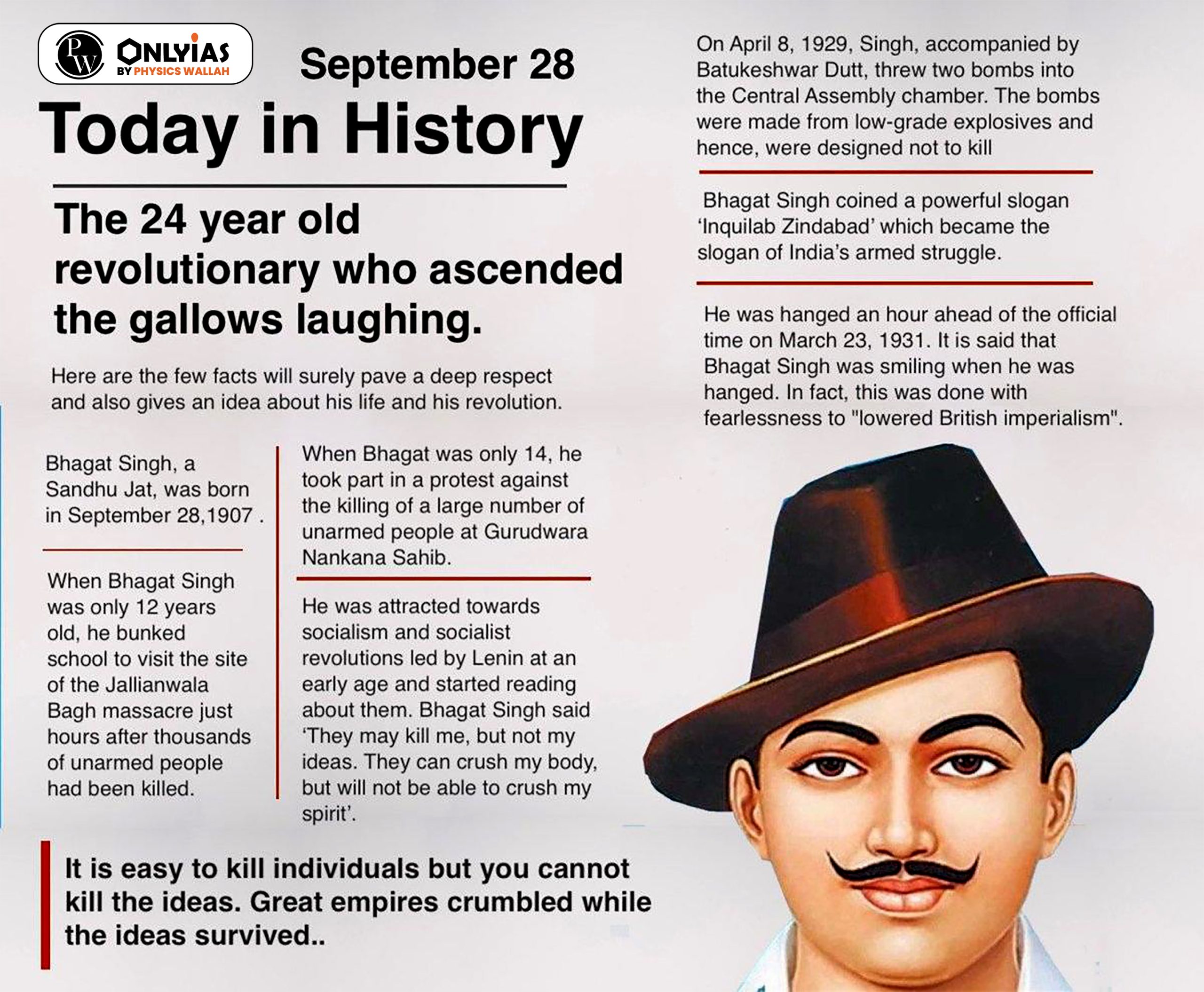![]() PWOnlyIAS
PWOnlyIAS
![]() October 16, 2023 07:48
October 16, 2023 07:48
![]() 4410
4410
![]() 0
0
The Prime Minister of India paid tributes to legendary revolutionary Shaheed Bhagat Singh on his birth anniversary on 28th September.

Shaheed Bhagat Singh was an Indian nationalist and revolutionary who laid down his life in the quest for India’s freedom from British rule.

| Also Read Other Biography | |
|---|---|
| Lal Bahdur Shastri | Netaji Subhas Chandra Bose |
| Jayaprakash Narayan | Nanaji Deshmukh |
| Indira Gandhi | Sardar Vallabhbhai Patel |
| Sam Manekshaw | |
| Must Read | |
| NCERT Notes For UPSC | UPSC Daily Current Affairs |
| UPSC Blogs | UPSC Daily Editorials |
| Daily Current Affairs Quiz | Daily Main Answer Writing |
| UPSC Mains Previous Year Papers | UPSC Test Series 2024 |

<div class="new-fform">
</div>
Latest Comments